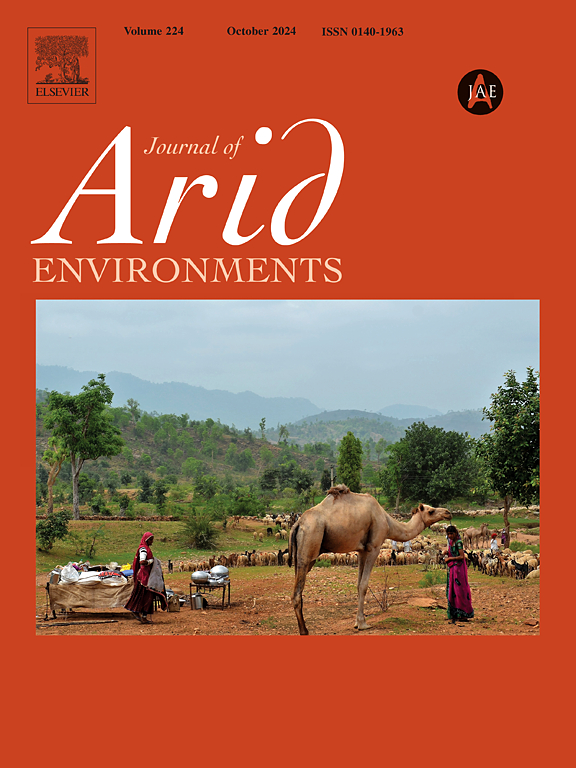A new index for comprehensively assessing multiple ecosystem services in typical arid and semi-arid areas
IF 2.6
3区 环境科学与生态学
Q2 ECOLOGY
引用次数: 0
Abstract
An accurate assessment of the ecosystem service is a fundamental prerequisite for achieving sustainable regional development in arid and semi-arid regions. Current indices for evaluating ecosystem services typically aggregate the cumulative or maximum values of a specific set of ecosystem services. However, when the performance of individual ecosystem services varies widely, these indices can be disproportionately influenced by outliers. This may lead to either overestimation or underestimation of the overall ecosystem services. This study proposes a novel assessment approach, namely the multi-dimensional ecosystem service index (MDESI), with a view to addressing the aforementioned issues. And the MDESI is employed to assess ecosystem services in a typical arid and semi-arid region, exemplified by Inner Mongolia from 2001 to 2020. The results demonstrate that (1) in arid and semi-arid regions, the MDESI is more effective than the traditional cumulative and maximum methods; (2) from 2001 to 2020, the ecosystem service capacity of Inner Mongolia exhibited a spatial pattern of decline from the northeast to the southwest; (3) despite regional variations, soil and water conservation services represent the most significant constraint on ecosystem services in Inner Mongolia. This study provides a theoretical basis for the government to formulate sustainable development.
典型干旱半干旱区多种生态系统服务功能综合评价的新指标
准确评估生态系统服务功能是实现干旱半干旱区区域可持续发展的基本前提。目前评价生态系统服务功能的指数通常是一组特定生态系统服务功能的累积值或最大值。然而,当单个生态系统服务的表现差异很大时,这些指数可能受到异常值的不成比例的影响。这可能导致对整个生态系统服务的高估或低估。为了解决上述问题,本文提出了一种新的评价方法——多维生态系统服务指数(MDESI)。以内蒙古为例,利用MDESI对2001 - 2020年典型干旱半干旱区的生态系统服务进行了评价。结果表明:(1)在干旱半干旱区,MDESI比传统的累积法和极值法更有效;(2) 2001—2020年,内蒙古生态系统服务能力呈现由东北向西南递减的空间格局;(3)尽管存在区域差异,水土保持服务对内蒙古生态系统服务的制约作用最为显著。本研究为政府制定可持续发展政策提供了理论依据。
本文章由计算机程序翻译,如有差异,请以英文原文为准。
求助全文
约1分钟内获得全文
求助全文
来源期刊

Journal of Arid Environments
环境科学-环境科学
CiteScore
5.70
自引率
3.70%
发文量
144
审稿时长
55 days
期刊介绍:
The Journal of Arid Environments is an international journal publishing original scientific and technical research articles on physical, biological and cultural aspects of arid, semi-arid, and desert environments. As a forum of multi-disciplinary and interdisciplinary dialogue it addresses research on all aspects of arid environments and their past, present and future use.
 求助内容:
求助内容: 应助结果提醒方式:
应助结果提醒方式:


